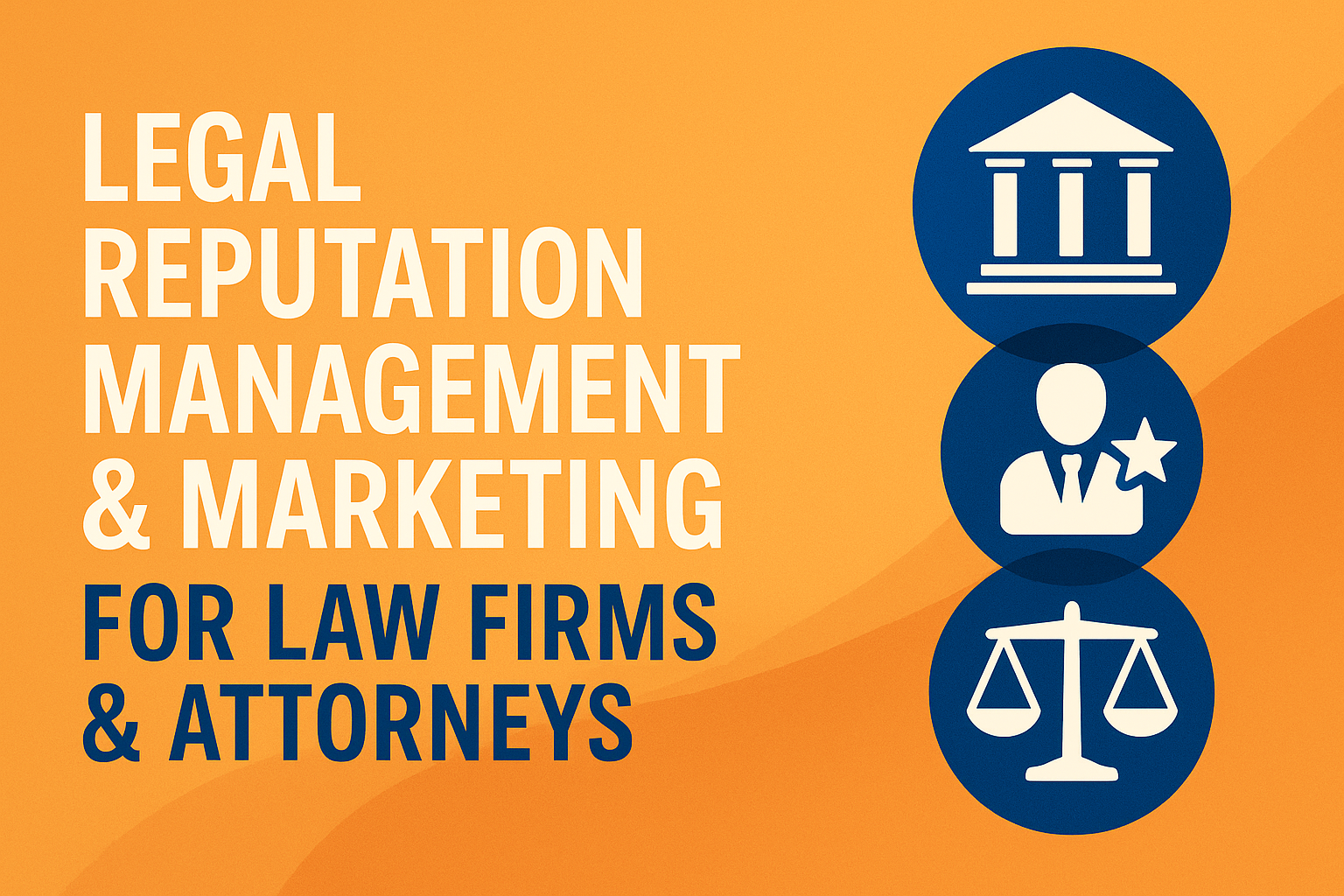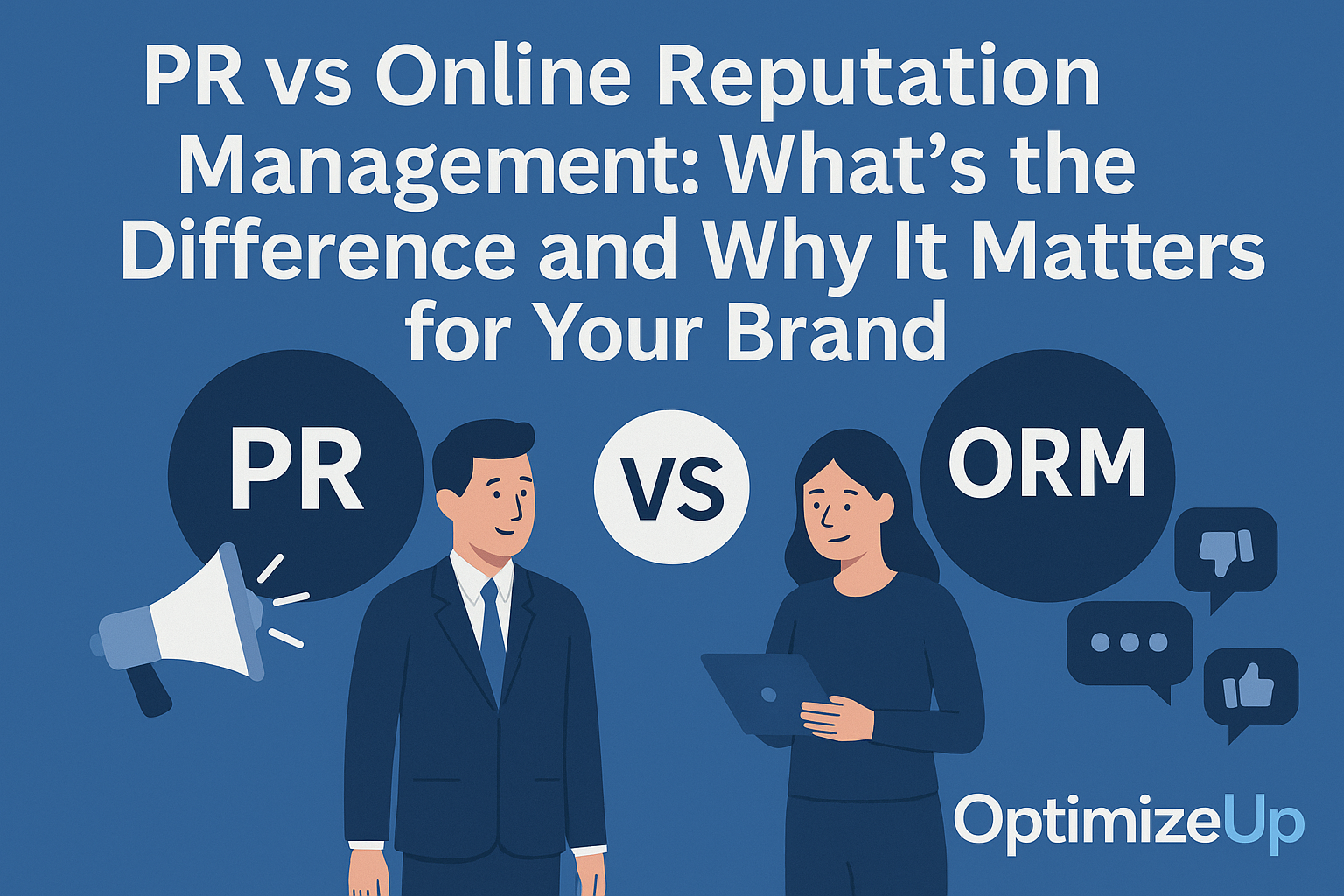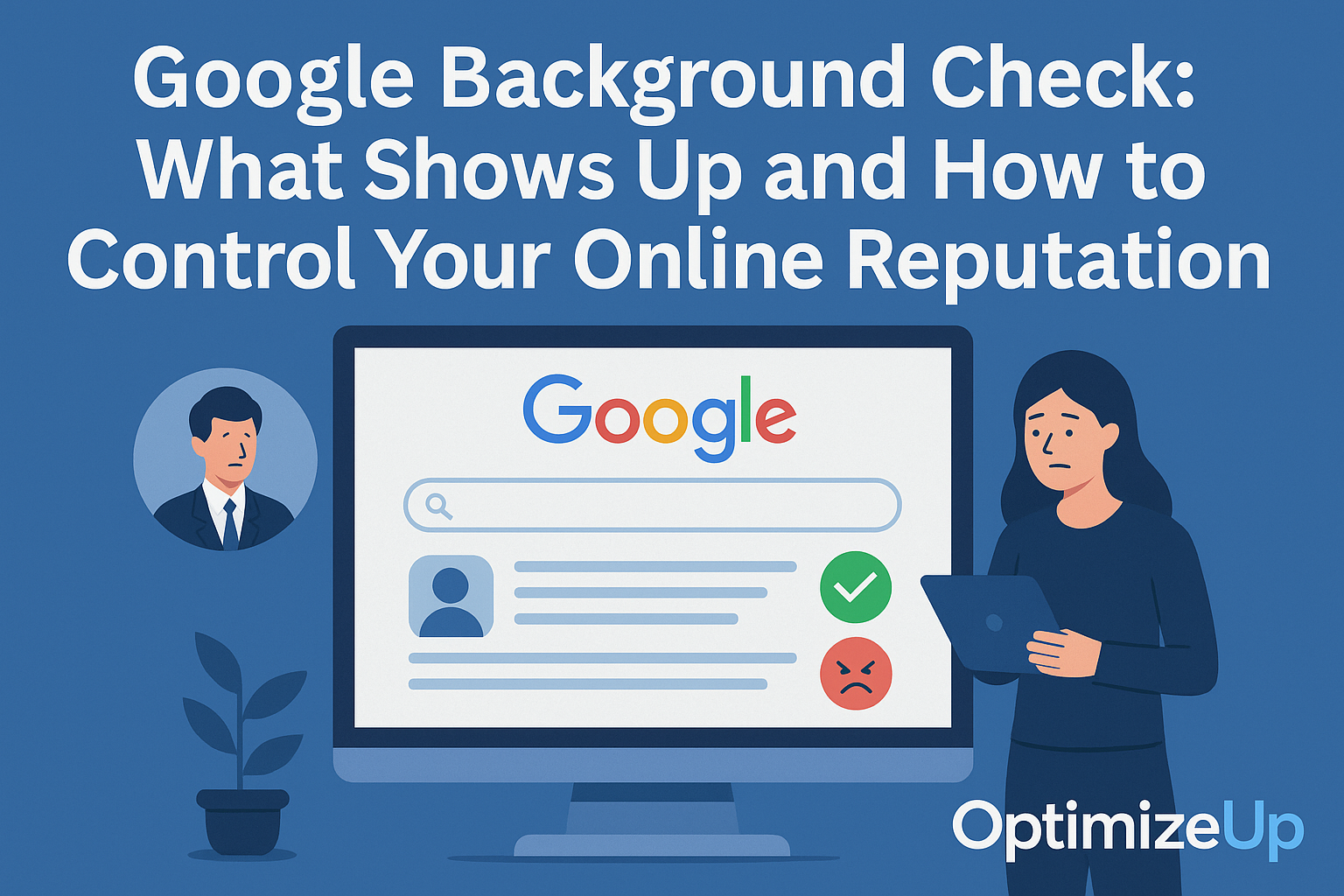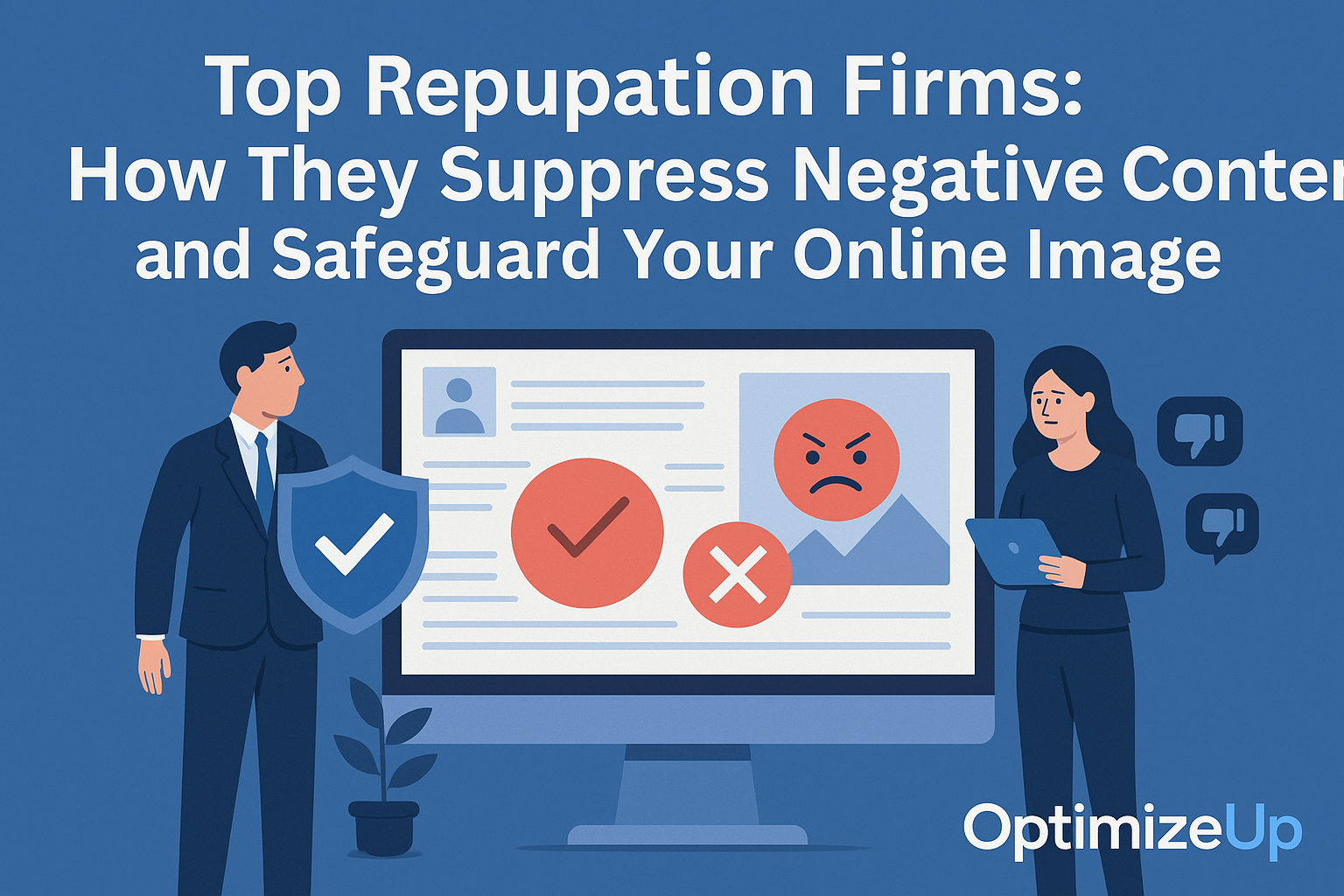Why Legal Reputation Management Matters More Than Ever
For law firms and attorneys, reputation isn’t just a branding buzzword—it’s a necessity. In an era where clients research attorneys extensively before making contact, your online footprint could determine your firm’s success or failure.
The Stakes Are Higher for Lawyers
- Client trust hinges on perception
- One negative review can cost dozens of leads
- State bar complaints or past legal losses become search engine magnets
- Reputation affects referral business and SEO rankings
- High-profile attorneys face constant scrutiny in both media and court of public opinion
Understanding Legal Reputation Management
Reputation management in the legal industry involves controlling what prospective clients see about you online and ensuring your public persona aligns with your actual practice values.
Key Goals:
- Suppress negative search results
- Improve Google search visibility
- Boost client reviews across authoritative platforms
- Build a consistent personal and firm brand across channels
- Mitigate the impact of outdated or misleading legal content
Unique Legal Challenges:
- Legal proceedings are public record and can resurface years later
- Attorney-client privilege limits public clarification
- High-profile cases attract media scrutiny
- Ethical and compliance constraints on public responses
Core Strategies for Legal Reputation Management
1. Own Your Name on Google
- Create and optimize your Google Business Profile
- Secure domain variations (e.g., [yournameattorney.com])
- Use structured data and schema markup to enhance visibility
- Claim and complete attorney listings on directories like Avvo, Justia, and SuperLawyers
2. Build a Strong Review Portfolio
- Encourage satisfied clients to leave reviews on:
- Avvo
- Martindale-Hubbell
- Yelp
- Use services like BirdEye, NiceJob, or Podium for automated review outreach
- Respond to reviews within 24–48 hours when possible
- Offer QR codes or review links on printed materials and follow-up emails
3. Content Development for Authority
- Blog regularly on trending legal topics, changes in law, and client concerns
- Contribute to legal Q&A sites like Avvo and Quora
- Produce podcast episodes, YouTube explainers, and thought-leader interviews
- Repurpose blog content into email newsletters and LinkedIn articles
4. Suppress Negative Results
- Launch high-authority content campaigns:
- Guest blogs on bar associations or media platforms
- Local and national press releases for major wins or initiatives
- Legal directory optimization (Justia, NOLO, LawInfo)
- Syndicate content across multiple high-DA sites
5. Monitor & Manage Mentions
- Set up Google Alerts for your name, firm, and practice areas
- Use Mention, BuzzSumo, or Brand24 for real-time monitoring
- Track ratings, comments, and Q&A sections on Avvo, Yelp, and Reddit
Legal Marketing That Complements Reputation Management
While controlling negative exposure is vital, building visibility and thought leadership is equally essential.
High-Impact Marketing Channels for Attorneys
- SEO-Optimized Website: Your website must be fast, mobile-responsive, and rich with service pages and FAQ content
- Local SEO: Include consistent NAP citations, service area content, and verified map locations
- Email Marketing: Develop segmented lists for former clients, referral partners, and newsletter subscribers
- Social Media: Post updates, client wins (with permission), and insights across LinkedIn, Twitter, and Facebook
- Referral Outreach: Build relationships with other professionals (doctors, CPAs, etc.) for cross-referrals
Proven Campaign Types:
- Client Education Series
- Weekly email tips
- Legal basics webinars
- Law Updates & News Commentary
- Analyze new case law or state rulings
- Share commentary on recent high-profile court decisions
- Case Study Highlights
- Anonymized client success stories
- Visual testimonials using Canva or Loom
- Local Community Engagement
- Sponsor events, host workshops, volunteer in pro bono clinics
- Get coverage in local press or TV news
How to Handle Common Online Threats
Bad Reviews from Clients
- Stay calm and courteous in your response
- Avoid legal jargon that could seem defensive or intimidating
- Offer to take the conversation offline
- If unfounded, politely state your disagreement while staying professional
Negative Press or Public Complaints
- Publish a public statement on your site or issue a press release
- Share your side of the story where appropriate (without violating confidentiality)
- Seek corrections or clarifications from journalists when misinformation is present
Malicious Competitor Activity
- Screenshot all instances
- File complaints to platforms like Google, Facebook, or the Better Business Bureau
- Consider legal action through cease and desist letters or tortious interference claims
Legal SEO and Reputation Overlap
Google’s algorithm favors:
- Consistency
- Authority
- Recency
- Relevance
All of which align with good reputation practices. Legal SEO enhances reputation, and vice versa.
Quick Wins for Legal SEO:
- Title tags: Include practice area + city (e.g., "Estate Planning Attorney in Denver")
- Internal linking: Link between blog posts, attorney bios, and practice area pages
- Local schema: Add LocalBusiness and Attorney schema to boost local listings
- FAQPage schema: Helps your content appear in "People Also Ask" boxesHow to Evaluate a Legal Reputation Management Firm
When choosing a partner, consider:
- Experience with legal professionals and understanding of advertising compliance
- Transparent methods and white-hat SEO practices
- A track record of case studies with attorneys or law firms
- Ability to combine PR, SEO, and legal-specific tools
Questions to Ask:
- Do you offer courtroom record suppression?
- How do you handle fake reviews?
- What platforms do you optimize most frequently?
- Will I have access to reporting and dashboards?
Why Choose OptimizeUp for Legal Reputation Management?
OptimizeUp specializes in white-hat, law-compliant online reputation solutions. Our team includes SEO experts, licensed legal professionals, and media strategists who understand what’s at stake.
Services Include:
- Strategic reputation recovery plans
- Search result suppression for court records or Ripoff Reports
- Review boosting and repair
- Website audits and content strategy
- Legal PR and media placement
- Continuous monitoring and quarterly review updates
Schedule a free consultation and take control of your narrative today.
Frequently Asked Questions
Yes, when done transparently and legally. It involves highlighting factual, positive aspects of a practice while mitigating harmful misinformation.
Not usually, but it can often be de-indexed from Google or pushed down in rankings.
Only if they violate Google’s policies. Otherwise, respond respectfully and work to increase positive reviews.
Anywhere from 3 to 12 months depending on the severity of the issue and strategy used.
Yes. Each state bar has advertising and ethics guidelines. Always verify compliance when launching marketing campaigns.
In some cases, yes—especially if expungement or sealing is an option. Otherwise, suppression is recommended.
Yes. Strong reputational signals and optimized visibility attract higher-quality leads and increase trust conversion rates.
MLA Citations
“Managing Your Online Reputation.” American Bar Association, https://www.americanbar.org/groups/law_practice/publications/law_practice_magazine/2020/nd2020/online-reputation/. Accessed 13 May 2025.
“Google Review Policy.” Google Support, https://support.google.com/business/answer/4596773. Accessed 13 May 2025.
“SEO for Law Firms.” Search Engine Journal, https://www.searchenginejournal.com/law-firm-seo-guide/. Accessed 13 May 2025.
“Attorney Advertising Rules by State.” FindLaw, https://www.findlaw.com/legalblogs/lawyer-marketing/attorney-advertising-rules-by-state/. Accessed 13 May 2025.
“Reputation Management in Law Practice.” National Law Review, https://www.natlawreview.com/article/online-reputation-management-law-firms. Accessed 13 May 2025.





